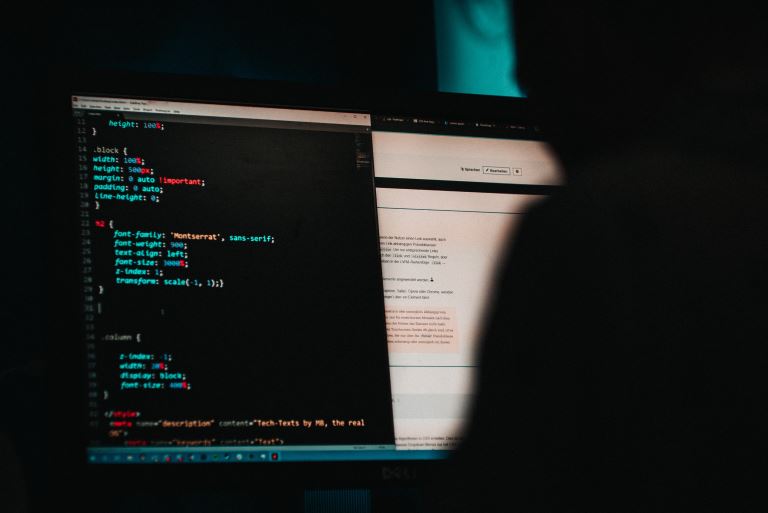
Beginner Guide: How to Become an Ethical Hacker
pThere are two ways of becoming an ethical hacker Either by enrolling in a school or on your own by undertaking courses and certifications online The skills needed in ethical hacking include programming networking authentication cyber security and so
Dreaming to become an ethical hacker is one thing and becoming one in another one. It is not an easy ride in the park. The challenges and rough rides are part of the ethical hacker's journey. Allow me to take you the best ways to become an ethical hacker within the shortest time possible.
There are two ways of becoming an ethical hacker. Either by enrolling in a school or on your own by undertaking courses and certifications online. The skills needed in ethical hacking include programming, networking, authentication, cyber security and so on.
Besides getting tips on how to become an ethical hacker, you will understand why you should be an ethical hacker, its benefits, how long it takes to be a professional, the certification available for you, and clear the air about this career-whether it is good or a bad one. so, let us get started.
Beginner Guide: How to Become an Ethical Hacker
Have you been having a dream of becoming an ethical hacker? Well, this article is for you. An ethical hacker is one of the careers that need hard work, patience, and practice.
There are two ways of becoming an ethical hacker. Either by enrolling in a school or on your own by undertaking courses and certifications online(self-study).
There are several skills that an ethical hacker has to understand and have a lot of knowledge about them. These skills range from programming, networking, authentication, cyber security, and so on. Here are some of the skills one must learn to become an ethical hacker:
- Learn about programming languages.
Understanding several programming languages like C, Java, PHP, C++, Python is one of the essential requirements of someone who aspires to be an ethical hacker. Mastering these languages takes time and practice for you to become better.
- Learn about scripting languages.
It's advisable to learn scripting languages like JavaScript, PHP, Python, Perl, and Bash.
- Understand the databases.
Most of the websites on the internet have databases. One must understand databases like Structured Query Language(SQL), MySQL, MongoDB, etc. He must know how databases operate. There is a need to differentiate between working with relational and non-relational databases.
- Understanding the searching engines
Ethical hackers should understand how search engines like Google, Maltego, Bing, DuckDuckGo operate. Hackers use these engines to check vulnerabilities on websites.
- Have networking knowledge.
It is about understanding the types of networks, how to protect them from attacks, threats. Ethical hackers must know about network firewalls and set up VPN, encryption, antivirus, etc.
Ethical hackers must know how to evade honey pots, firewalls, detection systems and perform network sniffing and analysis.
- Operating Systems.
Hackers need to understand how to use different operating systems(OS) like Windows, Fedora, Linux Kali distro. Kali distro is the commonly used operating system by ethical hackers. Understanding how it works and all its commands is a big plus to your career. You need to have an understanding of file manipulation, files permissions, navigating through directories e.t.c
- Technical and soft skills
Those learning ethical hacking are required to have better communication skills, teamwork, hard work, analytical and creative thinking, better documentation writing. The ethical hacker is also encouraged to understand all the ethics behind hacking by reading the ethics code.
- Understand the hacking tools and how to use them.
Hackers must understand how to use the majority of the hacking tools. The examples include Metasploit, Wireshark, Nmap, Nikto, Burpsuite, Intruder, Maltego, and how to use them.
- Do certifications and online courses.
The journey to becoming a certified hacker is long; learners can do several certifications and courses c online and in lab practices. Most of the certificates issued by the EC-Council are one of the world's most trusted bodies on cyber security and hacking. Some of the certifications and online courses include:
- Certified Network Defender(CND)-This certification is solely for network administrators. It helps the administrator to identify and respond to any threats on a network.
- Certified Ethical Hacker(CEH). The EC-Council issues this certification. It's one of the world's most known certificates for ethical workers. It equips the learner with the knowledge of how to improve the security of an organization. It outlines the code of ethics for people who want to join the ethical hacking field.
- Licensed Penetration Tester-It helps learners to become pen-testing masters. It enables you to improve your pen-testing skills that will match your global counterparts.
- CompTIA security. It equips the learners to access, monitor, secure, operate, and analyze security incidences in all the environments.
- OCSP Certification. It handles courses about Kali Linux, Networking, scripting, and penetration testing services.
The Certified Threat Intelligence Analyst. Cyber security experts developed it. It helps produce experts that will help organizations worldwide improve threat intelligence around their offices. - Cisco Certified Network Associate Security. It equips the hackers with knowledge and skills about CISCO networks. It shows how to recognize and kill threats, setting up security on networks.
- GIAC Certifications-They trains how to remain secure in cloud security, digital forensics, offensive operations, and management and audit.
- EC-Council Certified Security Analyst. This certification equips the learners with methodologies to cover different pen testing requirements when testing vulnerabilities.
- SysAdmin, Networking, and Security (SANS) Institute. SANS provides training for cybersecurity practitioners
Is Ethical Hacking a good career?
Ethical hacking is one of the fastest-growing careers in the USA and across the world. According to Indeed.com, there are over 30,000 jobs listed on the platform yearly, with a salary range of $101,200-$130,000 per year.
There is a lot of certifications and schools that are coming up with programs to teach ethical hacking. It has led to the growth of hacking jobs in the market. There was a projection that by the year 2031, there would be a 32% increase in the demand for these jobs.
Organizations have come out with extensive bounty programs that offer ethical hackers a certain amount of awards to test and look for vulnerabilities in their applications, websites, systems, apps, and servers. It has opened a lot of opportunities for ethical hackers.
Ethical hackers can play different roles in careers in an organization. They can work as a security analyst, penetration tester, security consultant, information security, etc. Some can work on freelancing terms or in a team.
What is Ethical Hacking and what is it used for?
Ethical hacking involves penetration into systems, networks, applications, organization structures, computer resources, or data to identify breaches and threats that can cause malicious hacking. Most of this job involves ethical hackers, cyber security engineers.
Ethical hackers are known for using complex technologies to perform this job.
Ethical hackers look for potential vulnerabilities, wrong system configurations that may lead to hacking of systems. They later provide solutions to fix the vulnerabilities found during the testing.
Ethical hackers are required to ask for legal permission from the organization to move on with the testing. They have a limited scope whereby they can't continue beyond a given area to make an attack a success.
While assigning the jobs, some organizations limit testing like Denial of Service attacks, which leads to the server crashing, affecting everyday operations.
When ethical hackers get tasked with the job, they have little time to expose the vulnerabilities compared to the black hat hackers who have a lot of time.
There are different types of hackers:
- White hat. They ask for permission before testing the vulnerabilities, and it's legal. (ethical hackers)
- Black hat hackers. They are dangerous types of hackers who are known for doing it due to personal and financial gains. They are known for malicious attacks.
- Grey hackers-they don't ask for permission while testing the vulnerabilities but don't perform hacking for financial or personal gain.
Types of Ethical hacking.
There are several types of ethical hacking. They make use of different tools and techniques. The types include:
- Social engineering. It is where hackers manipulate people to give crucial information. Most of the information they collect includes passwords, bank details, accessing your devices, and installing viruses. They trick people using emails, financial boosts, job offers e.tc
- System hacking-It involves the compromising of computer software and systems to steal information. The hacker exploits a weakness in the system and gets unauthorized access to the data.
- Web application hacking. It involves the manipulation and exploitation of websites through HTTP, GUI, and so on. They check the authentication, sessions management. If successful, they get away with data, passwords, and valuable information and even ask for a ransom.
- Wireless network hacking-This is when hackers hack those users connected to a network by bypassing the networks and cracking their passwords. They exploit the wireless network security implementations. They make use of tools like aircrack, cowpatty, Cain, and Abel. Most of the attacks made on the network are sniffing, a man in the middle attack, denial of service attacks.
- Web Server hacking. Most websites use web servers to store customer details, credit numbers, emails, and passwords. Most of these attacks start as a result of bugs, poor server configuration, and usage of default usernames and passwords like admin, test e.t.c
Ethical hackers make use of the same tools and methods used by malicious (black hat ) hackers to prevent attacks. After all the testing, they usually report all the vulnerabilities and weaknesses found during the testing.
Many organizations employ ethical hackers for a short period, tasking them to keep the entire systems safe using robust security procedures, system security configurations, etc.
After uncovering the vulnerabilities, the ethical hackers are supposed to come up with a report. The report contains an in-depth explanation of the findings. The organizations give points according to the result and the level of difficulty. Most ethical hackers get outsourced outside the organization; the report should be well written and detailed.
Steps of Ethical hacking
These are the procedures that ethical hackers approach to test for vulnerabilities. These are guidelines for hacking legally without compromising anything. It involves the following steps:
- Goal definition and information gathering. The ethical hacker is required to achieve the goals that are he agreed with the employer. Data collection is through TCP services, IP addresses, network hosts. The information collected includes passwords, personal information, emails.
- Testing the target. In this step, the ethical hacker must try different methods of accessing the target's information. Ethical hackers find more straightforward and quicker ways to access the network. It may include using active devices connected to the network, port scanners, and weak points. The hackers may make use of hacking tools like NetSparker, Nmap to find ways.
- Accessing the target. The hacker uses different methods to get unauthorized access into the networks, applications, and systems. The user has access to sensitive information and can now exploit it by asking for a ransom, stealing sensitive data. The hacking tool used here is Metasploit. The hacker may send phishing emails and links to the users in the system that will prompt them to fill in sensitive information and harvest them.
- Going through the system. The hacker now has unauthorized access to the system. He is required to harvest more information, vulnerabilities and perform more attacks. In this step, the hacker maintains the key to exploiting the system without the owner finding out. The standard hacking tool used is backdoor and Trojan.
- Clearing pathways. Now that the hacker has got what he wanted, he must clear all traps so that he cannot be traced and caught. The hacker can use different ways to remove the tangles like deleting logs, reversing HTTP shells, deleting values, and corrupting values.
There are several uses of ethical hacking.
1) Ethical hacking promotes security among nations
It's a result of protecting the nation's data and security systems against vulnerability. The data can be meaningful to terrorists and enable them to plan and counter-attacks, but it limits the possibility of an attack once it's protected. It helps in avoiding cyber terrorism.
2) Ethical hacking helps in finding vulnerabilities
IT firms, organizations, financial institutions, and corporate, private companies employ ethical hackers to access their products. The hackers evaluate the systems, perform an audit and make reports.
Some of the security vulnerabilities tested include lack of password protection, SQL injection attacks, poor security configurations, lousy authentication, and data breach.
3) Ethical hacking helps organizations in having a secure network that is free from data breaches.
4) Ethical hacking helps in building trust between the customers and the organization
Once the customers are assured security of their data and products, they feel secure, increasing their trust and the organizations they are getting the goods and services.
5) It helps in protecting the security architecture of an organization.
6) Ethical hacking helps in protecting an organization's networks from malicious attacks.
How long does it take to become an ethical hacker
Ethical hacking, like any other career, needs a lot of practice and mastering of skills. The timeline to become one will depend on the level of your programming and technical skills. For those who have skills, it will take between 2-5 yrs. This number of years also depends on how many hours you put in during learning per day.
If you take like 8 hrs per day, it will take a shorter time than the person who puts in 1-2 hours per day. For those with no coding skills will take them a little longer, around 5-6 yrs.
You must become proficient in different fields like networking, programming, scripting, and OS to have enough knowledge to become an ethical hacker and help the website owners to know what to do when a site is hacked.
Conclusion
Ethical hacking is becoming one of the fastest-growing careers in cyber security. It has led to many big organizations like Google and Facebook coming out with bug bounty programs to test their systems for vulnerabilities. If found, the hacker walks away with a lump of some money.
It is an exciting area of study with a lot of available learning resources and information. The article has guided you on everything you need to know, from how to begin, the mandate procedures of performing ethical hacking.
There are many malicious hackers in the world right now, which will push organizations to hire more ethical hackers to fix the vulnerabilities before they are exposed.









